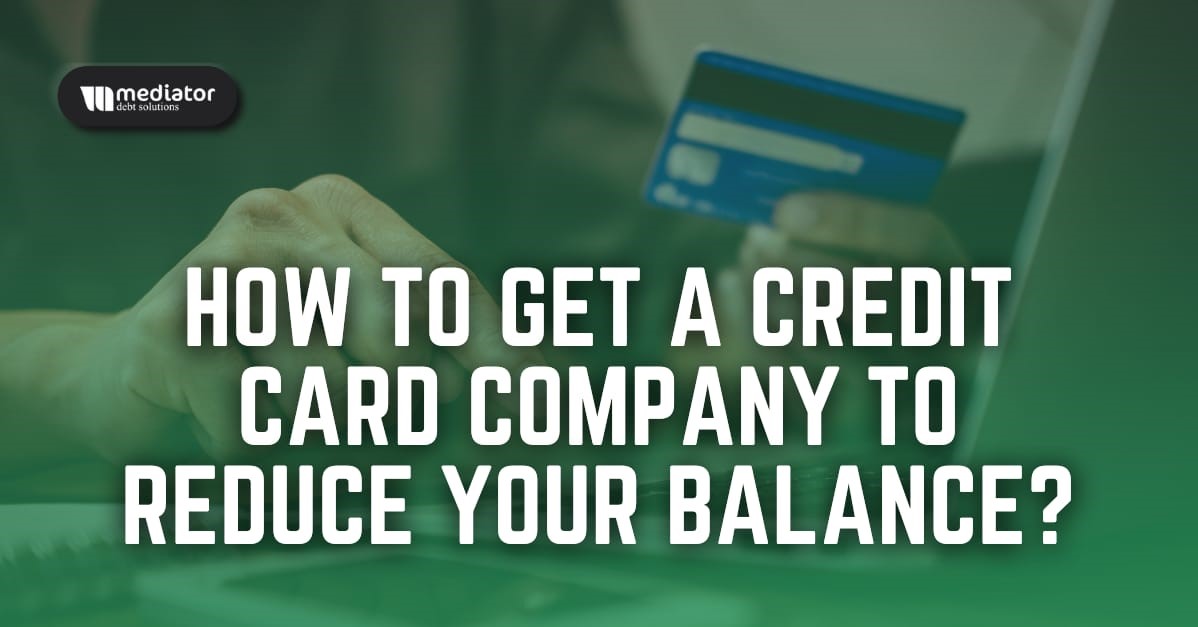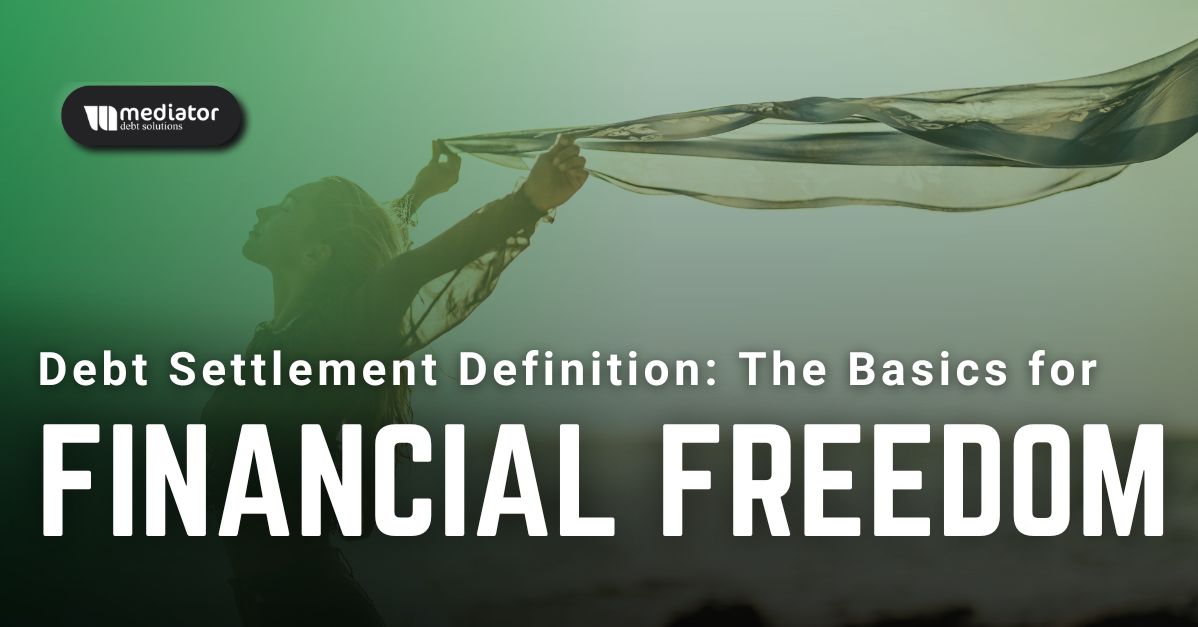Are you drowning in credit card debt, struggling to keep your head above water with ever-increasing balances and interest rates? If so, you’re not alone. Millions of people across the country find themselves trapped in a cycle of high-interest credit card debt, making it nearly impossible to break free and achieve their financial goals. But fear not, because there is hope, and it comes in the form of balance reduction.
In this comprehensive guide, we will walk you through the strategies and steps to successfully negotiate with your credit card company to reduce your balance, putting you on the path to financial freedom.
So, let’s get started on your journey to financial security and learn how to persuade your credit card company to reduce your balance, making your debt more manageable and your dreams of a debt-free life a reality.
Will A Credit Card Company Actually Reduce My Balance?
When financial hardships strike, it’s not uncommon for credit card payments to slip down the list of priorities. After all, credit card debt is unsecured, meaning that, unlike failing to pay your auto loan or mortgage, you won’t immediately risk losing your car or home. However, this doesn’t mean you can take your credit card debt lightly. Falling behind on credit card payments can have far-reaching consequences, from damaging your credit score to potentially facing legal action.
Credit card companies are well aware that when people are in financial distress, their unsecured credit card debt tends to become less of a priority. Instead of waiting for borrowers to ignore their debts or file for bankruptcy, credit card issuers may be open to negotiating credit card debt, allowing them to recover at least a portion of the money owed.
Furthermore, there’s a significant incentive for credit card issuers to retain you as a customer. They may be willing to negotiate to maintain a long-term relationship or prevent you from missing payments entirely.
Negotiating with your credit card company can be a lifeline to help you escape the suffocating grip of debt and reach financial stability.
Understanding your options when it comes to negotiating credit card debt can help you forge a manageable agreement with your creditors. It’s important to note that even if your credit card debt has been sent to a collection agency, negotiation is still possible, offering you a potential path toward financial recovery and a debt-free future.
Know Your Options
When you’re faced with the challenging task of negotiating with credit card companies, it’s vital to recognize that you have several pathways to consider. Your approach should be tailored to your financial situation and objectives. Here are the three primary options for negotiating with credit card companies, and it’s worth noting that embarking on this journey with the assistance of a reputable debt settlement company is often in your best interest.
- Lump-Sum Settlement
In a lump-sum settlement, debtors make a single, upfront payment for an amount lower than the total debt owed. After your creditors receive this lump-sum payment, your account is typically marked as “settled in full” on your credit report. This option is often the most advantageous for debtors, as it typically leads to the best deal with creditors and allows you to eliminate your debt entirely. The only downside to it is that it will have a negative impact on your credit score. Thus, seeking assistance from a reputable debt settlement company is wise.
- Hardship Agreement
A hardship agreement, sometimes referred to as forbearance, offers temporary relief to borrowers experiencing financial difficulties. Under this arrangement, your creditor may lower your minimum payment, reduce your interest rate, or waive late fees. Unlike a lump-sum settlement, with a hardship agreement, you’re still responsible for repaying your entire outstanding balance. It’s important to note that navigating the complexities of a hardship agreement can be made more manageable with the support of a trustworthy debt settlement company.
- Workout Agreement
A workout agreement involves the lender making modifications to the terms of your credit card.
These modifications could include lowering the minimum payment requirement, reducing the annual percentage rate (APR), or waiving certain fees that you’ve already accrued. If you’re still receiving a regular income and are committed to repaying your debt, a workout agreement can be an effective way to do so more efficiently. However, having a debt settlement company by your side can ensure that you secure the most favorable terms.
While these negotiation options offer potential paths to debt relief, it’s essential to understand that the complexities and potential pitfalls involved in dealing with creditors require professional guidance. The assistance of a reputable debt settlement company can provide you with the expertise needed to navigate these negotiations successfully.
I’m Ready To Start Negotiating!
Negotiating with credit card companies can be a challenging endeavor, as they’re often hesitant to modify their terms unless they fear you might declare bankruptcy. Whether you’re planning to tackle credit card negotiation on your own or considering professional assistance (as you should!), it’s crucial to be well-prepared for effective negotiations. Here’s a simplified step-by-step guide to help you get started:
- Assess Your Debt
Begin by confirming the total amount you owe. Check your account balance online or call your card issuer to get an accurate figure. It’s also wise to verify your current interest rate.
- Explore Your Options
Consider whether a lump-sum settlement, a workout agreement, or a hardship agreement aligns best with your financial situation.
- Contact Your Credit Card Company
If you’ve chosen to handle negotiations on your own, reach out to your credit card company. Ask to speak with their debt settlement, loss mitigation, or hardship department – these departments have the authority to negotiate. When speaking with the appropriate representative, explain your financial situation and present your negotiation proposal. Remember to be polite but firm in your approach.
- State Your Intentions
If you’re considering bankruptcy or professional assistance for debt settlement, inform the card issuer. Be prepared for the possibility that the card issuer may freeze your credit limit or close your account at this stage.
- Document the Process
Keep detailed notes of your conversations with the card issuer. You can also choose to record the calls, but be aware that some states require you to inform both parties if you’re recording. Don’t hesitate to request a supervisor or follow up with multiple calls if you’re unsatisfied with the proposed terms.
- Secure a Written Agreement
Once the card issuer agrees to a settlement or arrangement that you find acceptable, request written documentation. Your agreement isn’t final until you have it in writing.
Achieving Financial Freedom with Mediator Debt Solutions
Navigating the challenging terrain of credit card debt negotiation is a journey best undertaken with expert guidance. The choices you make today can have a profound impact on your financial future, and the complexities involved require the skills and experience of professionals who specialize in debt settlement.
At Mediator Debt Solutions, we are committed to helping individuals like you regain control of their financial lives. Our team of experts is dedicated to securing the most favorable terms and paving the way to a debt-free future. When it comes to negotiating with credit card companies, we understand the nuances, and we work tirelessly to ensure that your best interests are protected.
Don’t face the challenges of credit card debt negotiation alone. Let us guide you towards a brighter financial future. Contact Mediator Debt Solutions and start your path to reducing your credit card balances today. Your financial well-being is our priority, and we’re here to help you every step of the way.














